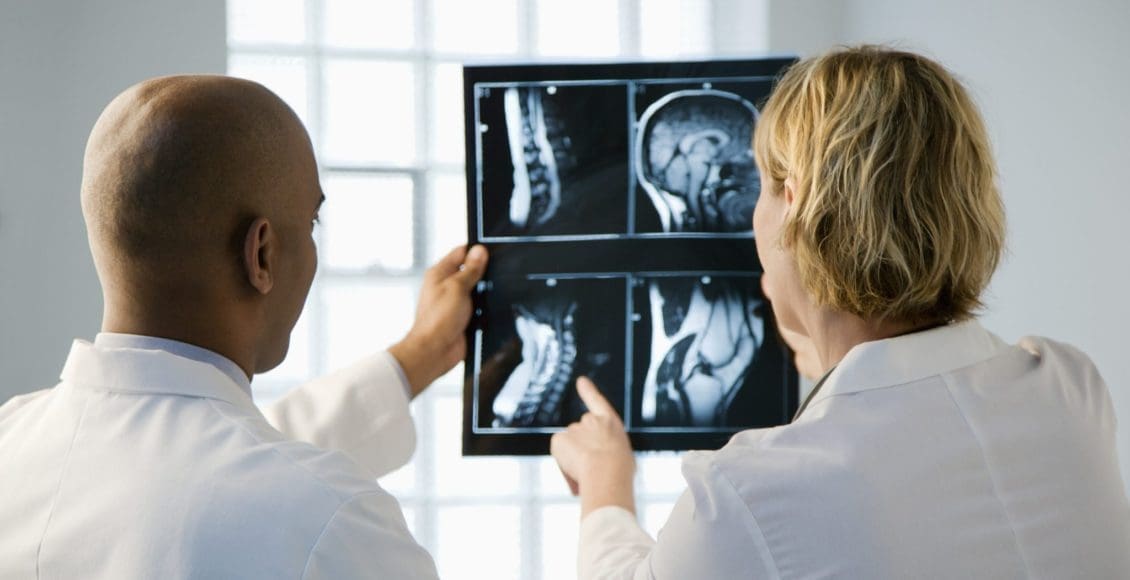Sciatica, medically defined as a set of symptoms rather than a single disorder, is commonly characterized by pain in the lower back and buttocks. This pain can radiate down one or both legs to the thigh, calf, ankle, and foot. True sciatica occurs when pain begins to travel below the knee.
Sciatic pain frequently results when the spinal column’s nerve roots are compressed or when the pressure has caused the impingement of the spinal roots of the sciatic nerve. The sciatic nerve systems are found in the sacral regions of the back and the lumbar spine. Sciatic pain or sciatica could be identified as sharp, dull, burning, tingly, numb, constant, or intermittent and usually affects only one side of the body. It may radiate throughout the whole length of the nerve, in certain cases, to the toes.
Sciatic pain is usually the result of a herniated disc, spinal stenosis, or in exceptionally rare instances, infection or tumor. The cause of your pain determines your treatment options to relieve sciatica.
 Sciatica Treatment Options
Sciatica Treatment Options
Several popular sciatica treatment options include alternative treatments, such as acupuncture, chiropractic care, drugs, physical therapy, and surgical interventions.
Once a qualified and experienced healthcare professional has diagnosed you with sciatica symptoms, many individuals with prevalent lower back pain are prescribed bed rest to offer relief for aching bones and joints. Current research, however, has implied that bed rest alone cannot offer relief for those suffering from nerve pain due to sciatica.
Remaining active might be more beneficial for people who suffer from back pain. Not to say that you should be running marathons! Action means being mobile and active for periods that aren’t enough to cause additional pain and/or aggravate other sciatica symptoms. Your healthcare professional may recommend specific exercises, or some may suggest walking.
Sciatica Pain Relief
Pain is best treated with non-steroidal anti-inflammatory drugs (NSAID) such as ibuprofen or codeine (in acute cases).
In some instances, a cortisone-like drug may be injected into the epidural space enclosing the spinal column. This process is similar to the epidural used during childbirth, and it’s called an epidural steroid injection. A class of this sort of treatment may offer temporary relief, but it does not address the source of the issue.
Related Posts
Surgery for Sciatica Symptoms
Some patients with sciatica may discover significant relief from surgery. In the case of herniated discs, a surgical procedure called a laminectomy might be performed. In this process, a percentage of the posterior arch is removed to relieve pressure on pinched nerve tissues.
In cases of spinal stenosis, the part of the bone that is putting pressure on the sciatic nerve system may be removed.
Operation is not for everyone. Nonetheless, surgery may offer considerable relief for people who have shown no sign of improvement in 4 to 6 weeks and who have had CT scans (computed tomography) or MRI that show a herniated disc or spinal stenosis.
Additional Topics: Chiropractic and Sciatica
Sciatica is a common group of symptoms reported by most people alongside back and low back pain symptoms. Sciatica, or sciatic nerve pain, is frequently the result of compression or impingement of the sciatic nerve and its nerve roots, generally from spinal misalignment or subluxation. Chiropractic care is a safe and effective alternative treatment utilized to restore the natural alignment of the spine, ultimately reducing the pressure placed against the sciatic nerve and relieving sciatica symptoms.
Complex Sciatica Syndromes
Post Disclaimer
Professional Scope of Practice *
The information on this blog site is not intended to replace a one-on-one relationship with a qualified healthcare professional or licensed physician and is not medical advice. We encourage you to make healthcare decisions based on your research and partnership with a qualified healthcare professional.
Blog Information & Scope Discussions
Welcome to El Paso's Premier Wellness and Injury Care Clinic & Wellness Blog, where Dr. Alex Jimenez, DC, FNP-C, a board-certified Family Practice Nurse Practitioner (FNP-BC) and Chiropractor (DC), presents insights on how our team is dedicated to holistic healing and personalized care. Our practice aligns with evidence-based treatment protocols inspired by integrative medicine principles, similar to those found on this site and our family practice-based chiromed.com site, focusing on restoring health naturally for patients of all ages.
Our areas of chiropractic practice include Wellness & Nutrition, Chronic Pain, Personal Injury, Auto Accident Care, Work Injuries, Back Injury, Low Back Pain, Neck Pain, Migraine Headaches, Sports Injuries, Severe Sciatica, Scoliosis, Complex Herniated Discs, Fibromyalgia, Chronic Pain, Complex Injuries, Stress Management, Functional Medicine Treatments, and in-scope care protocols.
Our information scope is limited to chiropractic, musculoskeletal, physical medicine, wellness, contributing etiological viscerosomatic disturbances within clinical presentations, associated somato-visceral reflex clinical dynamics, subluxation complexes, sensitive health issues, and functional medicine articles, topics, and discussions.
We provide and present clinical collaboration with specialists from various disciplines. Each specialist is governed by their professional scope of practice and their jurisdiction of licensure. We use functional health & wellness protocols to treat and support care for the injuries or disorders of the musculoskeletal system.
Our videos, posts, topics, subjects, and insights cover clinical matters and issues that relate to and directly or indirectly support our clinical scope of practice.*
Our office has made a reasonable effort to provide supportive citations and has identified relevant research studies that support our posts. We provide copies of supporting research studies available to regulatory boards and the public upon request.
We understand that we cover matters that require an additional explanation of how they may assist in a particular care plan or treatment protocol; therefore, to discuss the subject matter above further, please feel free to ask Dr. Alex Jimenez, DC, APRN, FNP-BC, or contact us at 915-850-0900.
We are here to help you and your family.
Blessings
Dr. Alex Jimenez DC, MSACP, APRN, FNP-BC*, CCST, IFMCP, CFMP, ATN
email: coach@elpasofunctionalmedicine.com
Licensed as a Doctor of Chiropractic (DC) in Texas & New Mexico*
Texas DC License # TX5807
New Mexico DC License # NM-DC2182
Licensed as a Registered Nurse (RN*) in Texas & Multistate
Texas RN License # 1191402
ANCC FNP-BC: Board Certified Nurse Practitioner*
Compact Status: Multi-State License: Authorized to Practice in 40 States*
Graduate with Honors: ICHS: MSN-FNP (Family Nurse Practitioner Program)
Degree Granted. Master's in Family Practice MSN Diploma (Cum Laude)
Dr. Alex Jimenez, DC, APRN, FNP-BC*, CFMP, IFMCP, ATN, CCST
My Digital Business Card


